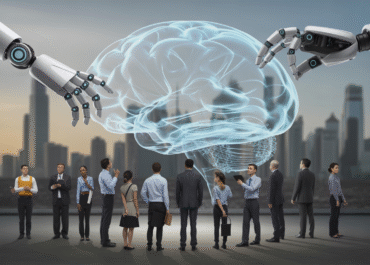Google DeepMind Unveils Breakthrough AI for Protein Prediction Beyond AlphaFold
In a monumental stride forward for artificial intelligence and biological research, Google DeepMind has announced a new AI model that significantly surpasses the capabilities of its own revolutionary AlphaFold in predicting protein structures. This breakthrough opens unprecedented avenues for drug design, disease understanding, and fundamental biological research, firmly cementing a new milestone in the field of bio-AI.
The Unfolding Mystery: Why Protein Prediction Matters
Proteins are the workhorses of life, fundamental to nearly every biological process. Their function is intimately tied to their intricate 3D structure, which they fold into based on their amino acid sequence. Decades ago, understanding this «protein folding problem» was one of biology’s grandest challenges. Being able to accurately predict these structures is crucial for designing new drugs, understanding the mechanisms of diseases like Alzheimer’s or cancer, and developing novel enzymes for industrial applications.
AlphaFold’s Legacy: A Glimpse into the Future
Google DeepMind’s AlphaFold, first unveiled in 2018 and significantly advanced in 2020, revolutionized the field by demonstrating an AI’s ability to predict protein structures with unprecedented accuracy. It rapidly accelerated research across various disciplines, making formerly impossible experiments feasible and providing a powerful tool for the scientific community. AlphaFold proved that AI could decode complex biological puzzles, earning widespread acclaim and changing the landscape of structural biology.
Beyond AlphaFold: A New Era of Bio-AI
While AlphaFold was groundbreaking, DeepMind’s latest model pushes the boundaries even further. Although specific technical details of its improvements are still emerging, the announcement points to an AI that offers even greater accuracy, speed, or perhaps the ability to predict more complex protein interactions or dynamic changes that AlphaFold might have found challenging. This enhanced predictive power means researchers can now explore biological questions with an even higher resolution and confidence.
The implications of this advancement are profound. For drug discovery, it means faster identification of potential drug targets and more efficient design of molecules that can precisely interact with disease-causing proteins. In basic biological research, it provides an invaluable tool for understanding cellular machinery, evolutionary processes, and how genetic mutations might lead to structural changes and disease.
Paving the Way for Future Innovations
This new AI model from Google DeepMind isn’t just an incremental update; it’s a foundational step towards an era where AI plays an even more central role in accelerating scientific discovery. It signifies a future where the complexities of life can be deciphered with unprecedented precision, leading to transformative impacts on medicine, biotechnology, and our fundamental understanding of the natural world. This continued progress in bio-AI promises to unlock solutions to some of humanity’s most pressing health and environmental challenges.
The scientific community eagerly awaits more details and access to this latest iteration, poised to leverage its capabilities to redefine what’s possible in the pursuit of knowledge and the development of life-saving interventions.


